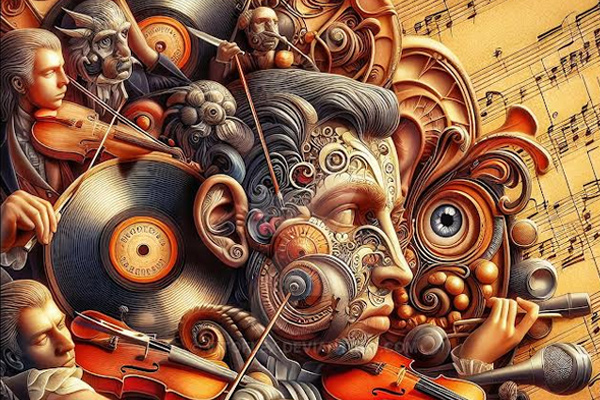For more on radio and music business news. | Click on RNMBiz

MUMBAI: In recent years, artificial intelligence (AI) has been making significant strides in various industries, and the world of music is no exception. From composing melodies to aiding in music production and even predicting future hits, AI is reshaping how music is created, consumed, and enjoyed.
One of the most fascinating applications of AI in music is its ability to compose original pieces. Companies like OpenAI and Sony have developed AI systems capable of generating melodies, harmonies, and even entire compositions based on a set of parameters or styles provided by human composers. These systems analyze vast amounts of musical data to learn patterns and create music that can rival compositions written by humans.
For example, OpenAI's MuseNet can generate compositions in various genres and styles, blending elements from classical to contemporary music seamlessly. This capability not only assists musicians in the creative process but also opens doors to new musical possibilities that may not have been explored otherwise.
AI is also revolutionizing music production by automating and streamlining various tasks. Software tools powered by AI can analyze audio tracks to isolate vocals, remove background noise, or even suggest improvements in mixing and mastering. This not only saves time for producers but also improves the overall quality of the final product.
Companies like LANDR and iZotope offer AI-driven mastering tools that can enhance audio recordings with minimal human intervention. These tools use machine learning algorithms to understand the characteristics of different genres and apply appropriate mastering techniques automatically.
Furthermore, AI is being used to predict music trends and personalize recommendations for listeners. Streaming platforms like Spotify and Apple Music utilize machine learning algorithms to analyze listening habits and preferences, curating personalized playlists and recommendations for their users. This personalization not only enhances user experience but also helps emerging artists reach new audiences based on their musical preferences.
Despite its many benefits, AI in music also raises certain challenges and ethical considerations. Issues such as copyright infringement, the authenticity of AI-generated music, and the potential displacement of human musicians are subjects of ongoing debate within the industry and among policymakers.
In conclusion, AI is transforming the music industry by enabling new forms of creativity, enhancing production processes, and personalizing music experiences for listeners. While there are challenges to navigate, the continued development of AI promises to unlock new possibilities and push the boundaries of what is musically achievable. As AI technology advances, its role in music creation and consumption will undoubtedly continue to evolve, shaping the future landscape of the industry.